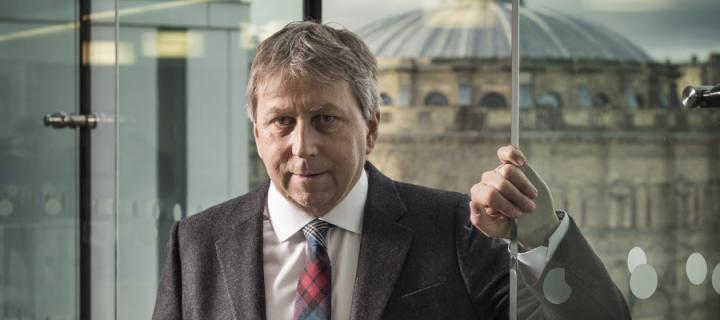Summary and welcome
A short summary of the University of Edinburgh's BSL plan and a message from the Principal.
Short summary of the plan
The University of Edinburgh’s first 6-year British Sign Language Plan has targets in all ten areas of the National BSL Plan. The plan has 54 action points which cover every area of the University’s work.
The University commits to employing a BSL Officer and a BSL Teacher.
In the Moray House School of Education the University plans to explore opening two programmes of initial teacher education to fluent BSL users, deaf and hearing as a contribution to raise standards in sign bilingual education for deaf children and to allow BSL to be taught as a school language.
Many parts of the University have been involved in drawing up this plan to ensure we become more welcoming to BSL users who are students, members of staff or visitors.
Message from the Principal

The University of Edinburgh warmly welcomes the British Sign Language (Scotland) Act 2015 and shares the Scottish Government’s aim to make Scotland the best place for Deaf British Sign Language (BSL) users to work, study and visit.
The University is well placed to support the Government’s aims and aspirations for BSL users – by seeking to increase the numbers of BSL users who choose to study at the University (and ensuring they are well supported when they do); but also by capitalising on the expertise of our academic community - for example through seeking to introduce new teacher training programmes for BSL users at the Moray House School of Education. We are also committed, as one of Edinburgh’s major employers, to encouraging more BSL users to apply to work here and to help them progress in their chosen career.
Although the numbers of BSL users at the University are still low, we are immensely proud of our current BSL students and our BSL alumni, including Lilian Lawson who studied Zoology at the University in the 1970s and was awarded an honorary doctorate for her work with Deaf communities and Parliament in 2017.
This is a bold and comprehensive plan, which covers every area of the University’s work. I welcome it, and I am pleased to endorse it.
Professor Peter Mathieson
Principal and Vice-Chancellor

